5 Important Lessons Movie Studios Should Take Away From Split
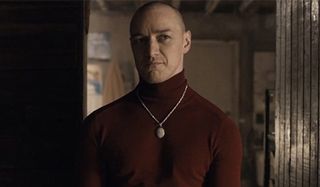
January isn't historically a month for big hit movies, but M. Night Shyamalan's Split has become just that. Packed with a surprising twist ending and an amazing performance from James McAvoy, the film rode high on critical reviews and has now won two box office weekends in a row. Looking at the numbers, it's a legitimate success story, and won that studios could actually learn a lot from.
Below and on the next few pages, we'll dig into what it is about Split that is legitimately special, and what the industry could take away from it as a whole. It should be noted that we will be heavily discussing the very end of the movie, so before we dig in...
SPOILER WARNING: The following article contains absolutely massive spoilers for the end of M. Night Shyamalan's Split. If you have not yet seen the film, and don't wish to know any details about the movie, please bookmark this link and return to this feature after your screening!
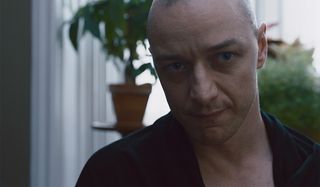
We Need More Outside The Box Sequels
Split didn't really need to be Unbreakable 2. Though certainly a bit dark and nihilistic in its conclusion, the movie does all come together as a complete and creepy thriller with a very strange protagonist/antagonist relationship. That being said, the pulpy sheen and genre change that the ending provides legitimately makes the film better as a whole, and it's a great choice that also spells exciting things for the future. It's also just a great example of a fresh way to create a sequel, and an approach that movie studios should be analyzing.
As M. Night Shyamalan has freely admitted, Split wasn't the easiest sell as a secret Unbreakable sequel, as it's clearly a powerful marketing angle that is just left on the table -- but Universal Pictures was willing to run with the idea, and it's clearly paid off in a big way. We're obviously not saying that every movie needs to be a clandestine follow-up to 17-year-old movies, but it certainly should be a clear example that there's many ways to approach and sell sequels in an age when they're being delivered to theaters practically every weekend.
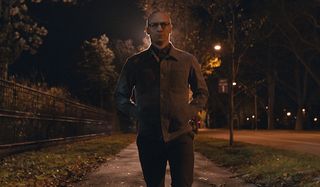
Quality Is Far More Important Than Immediacy In Sequel Production
Over time, we have seen plenty of bad sequels that took a long time to arrive. Hell, just last year saw the unfortunate delivery of Zoolander 2, which arrived 15 years after its predecessor and very much felt like it. Because of a few bad eggs, it's easy to dismiss decade-plus-later sequels... but Split very clearly runs contrary to the norm. And it's a perfect demonstration that a follow-up can really be made at any time -- it just ultimately matters that the quality of the story being told is up to snuff.
Going back to the first point, Split is a surprisingly inventive sequel in that it takes the themes of Unbreakable and flips them on their head (with "opposites" weirdly itself being a theme of the 2000 film). It was a concept that it clearly took M. Night Shyamalan more than 15 years to develop, but that time that is totally negligible in the face of the quality of the finished product. So let Split stand as an example to the major studios that they don't really need to rush projects along in order to keep up with what they assume is a short attention span. If the idea is strong enough, audiences will come back.
CINEMABLEND NEWSLETTER
Your Daily Blend of Entertainment News
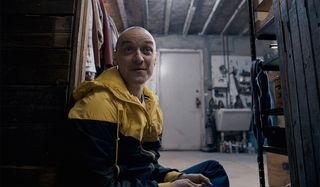
Second Weekends Are Important Too
Just because of the way blockbusters flood the release calendar in modern Hollywood, an incredibly strong emphasis has been placed on the strength of a film's opening weekend performance. It's not only because it's the strongest indicator of positive buzz and anticipation amongst audiences, but because whatever is coming out the following week has a good chance of stealing away attention. That being said, studios should really be taking a look at what Split has managed to pull off in its second week of release, because it's pretty damn impressive.
While it's standard for a movie's box office totals to drop between 50 and 60 percent from its first weekend to its second, that definitely isn't the case for M. Night Shyamalan's latest -- which only went down about 36 percent. This would be impressive all by itself, but it's all the more amazing because Split also far outperformed forecasts when it debuted. This was something that the writer/director actually full-on predicted when I spoke to him in November 2016. This may have been facilitated by the fact that people viewed the movie differently after learning about the twist -- which is an amazing strategy, really. Admittedly this is something that would be innately challenging for studios to fully replicate, but it clearly shows the positives in creative approaches.

Fans And Press WILL Keep Secrets, For The Most Part
One could make the solid argument that we live in the spoiler age. Social media allows details about films and television shows to spread lightning-fast around the world -- and it doesn't help that studios will sometimes give away big reveals in marketing materials. It's important to note, however, that this was never the story for Split. Despite plenty of pre-release premieres and screenings, the big twist managed to stay a secret for a shockingly long time, and it's something that movie studios should recognize.
Split had its Fantastic Fest world premiere nearly four whole months before the theatrical release, and followed that up about a month-and-a-half later with an AFI Fest Los Angeles debut (which is where I saw the film for the first time). With so many people having the opportunity to get an early look at the M. Night Shyamalan movie, you'd think that trolls would learn its secrets and try to flood the internet -- but that simply never happened. And even with the film now in its second week of release I find myself talking to still-interested movie-goers who remain in the dark about the twist. Star Wars: The Force Awakens was previously a positive example of this phenomenon, as major details were kept hush-hush even weeks after release, but Split is a nice reminder that audiences will respect the viewing experience provided that the studio does the same.
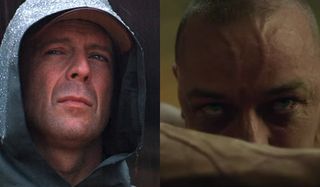
Supervillain movies work
This is a slight deviation from the other lessons Hollywood should learn from Split, but it's just as valid. For most of the runtime, M. Night Shyamalan's film is set up as a thriller centering around a dangerous man with Dissociative Identity Disorder -- but the twist at the end really changes the perception of the narrative and the genre. Much like how Unbreakable is a superhero story without a supervillain for 99 percent of its runtime, Split is actually a supervillain story that doesn't have a superhero until its final few seconds. And it should be a wake-up call to every studio producing comic book blockbusters right now.
One could argue that David Ayer's Suicide Squad was a step in the direction of this idea, but it still had supervillains acting like superheroes. What Split clearly demonstrates is that you can build a narrative around a heightened antagonist without the crutch of making them seem like a good person deep down -- instead going the opposite direction and legitimately showing why they are dangerous threats. This is the kind of new and different avenue that would help the comic book movie genre remain feeling fresh and vibrant.

Eric Eisenberg is the Assistant Managing Editor at CinemaBlend. After graduating Boston University and earning a bachelor’s degree in journalism, he took a part-time job as a staff writer for CinemaBlend, and after six months was offered the opportunity to move to Los Angeles and take on a newly created West Coast Editor position. Over a decade later, he's continuing to advance his interests and expertise. In addition to conducting filmmaker interviews and contributing to the news and feature content of the site, Eric also oversees the Movie Reviews section, writes the the weekend box office report (published Sundays), and is the site's resident Stephen King expert. He has two King-related columns.
Most Popular






